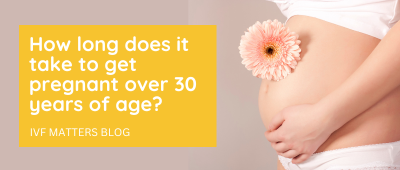The journey towards parenthood is a profound and often life-altering experience for many. For couples planning to conceive, or those experiencing delays when trying to get pregnant naturally, understanding the intricacies of fertility, the optimal timing for conception, and the role of sex in this process is key to unlocking the path to parenthood. Remember, the path to parenthood is unique for everyone, and patience, support, and understanding can make this journey a fulfilling and rewarding experience.
In this article, we'll delve into these aspects to shed light on the process of conception and offer guidance for couples trying to conceive.
Understanding Fertility
Fertility, the ability to conceive a child, is influenced by various factors.
For women, the menstrual cycle plays a crucial role. Typically, ovulation occurs midway through the cycle when a mature egg is released from the ovary and is available for fertilisation. Understanding your menstrual cycle length and identifying the signs of ovulation, such as changes in cervical mucus or using ovulation predictor kits, can significantly aid in determining the most fertile window.
For men, ensuring the optimum health of your sperm to fertilise an egg is equally important. Poor quality sperm, poor sperm motility or a low sperm count can have an impact on your ability to conceive.
When planning on starting a family, it can be helpful to understand your unique level of fertility and whether you are likely to fall pregnant naturally or experience any problems, particularly as you get older as fertility naturally declines. Often referred to as a Fertility MOT, test kits are available to help indicate your likelihood of success, so if you’re not sure whether your medical history or current health may impact your chances, it might be best to invest in these tests, even if it’s to receive the all-clear, so that you can start tracking your most fertile days and optimise your health for the best chance of success.
The Role of Sex in Conception
Sexual intercourse is the primary means of conception for most couples. During ejaculation, millions of sperm are released into the woman's reproductive tract. Sperm can survive in the female reproductive system for several days, waiting for the egg to be released. When intercourse coincides with ovulation, the chances of sperm fertilising the egg are at their highest.
While there isn't a one-size-fits-all approach to timing, having regular sex throughout the month can increase the chances of conception.
Timing and Ovulation
Dr Koita, Fertility Specialist and founder of IVF Matters recommends that couples have sex regularly, every 2 days, throughout the cycle to maximise the chance of natural conception.
Factors Affecting Conception
Lifestyle Factors:
Several lifestyle factors can impact fertility:
- Healthy Diet: A balanced diet contributes to overall health, which can positively influence fertility.
- Weight: Both being underweight and overweight can affect fertility in men and women.
- Alcohol, Smoking, and Substance Use: These can negatively affect fertility in both partners.
- Stress Management: High stress levels can affect hormonal balance and fertility.
Medical Conditions:
Certain medical conditions can impact fertility, such as polycystic ovary syndrome (PCOS) or endometriosis.
Age & Conception
Dr Koita recommends that if you are below 35 years of age, optimising your health for conception and following advice, such as that included in this Preconception Blog Series, you are likely to conceive naturally within 6 months to a year.
If you are over 35 and have been trying to conceive for over 6 months, have followed our advice to improve your chances of falling pregnant naturally, it might be time to consider that you need a little additional support and a tailored advice plan to achieve your dream of starting a family. This could literally mean gaining a better understanding of your own menstrual cycle and fertile window, or maybe you require tests to help you gauge and improve your fertility with a tailored nutrition plan or certain supplements to give you that much needed boost to get you back on track. Sometimes, it really does boil down to a better understanding of our own unique bodies and making that small tweak to what you’re doing to achieve the dream.
Seeking Help and Professional Guidance
For some couples, achieving conception might take longer than initially expected.
If you've been actively trying to conceive for a year (or six months if the woman is over 35) without success, seeking advice from a healthcare professional specialising in fertility can be beneficial. IVF Matters offer a Prep4Pregnancy: 3-month Support Programme to help you understand and adjust your fertility with a tailored plan that supports your particular circumstances as a couple. We can recommend any required tests to help identify any underlying issues and provide guidance on how to improve your reproductive health to help you achieve a pregnancy naturally.
If you're unsure, you can always book a FREE ADVISORY CALL to discuss your options and get the best advice from our team.






